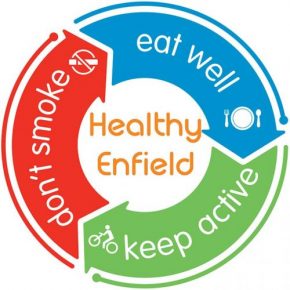Infectious diseases and infection control measures
Infections are common and for most people the risk of severe disease is low. Infections can be acquired at home or in the community and brought into settings or acquired and spread within the setting.
Further information about micro-organisms, and how to teach about them, is available from the e-Bug website.
See here for more information on how infections are spread.
Infection control
Infection control methods in schools involve:
- Hand hygiene - ensure all individuals have access to liquid soap, warm water, and paper towels. Alcohol hand gel is not effective against organisms that cause gastroenteritis, such as norovirus.
- Respiratory and cough hygiene - discourage spitting. Encourage children to cover nose and mouth with a tissue when coughing and sneezing, dispose of used tissue in a waste bin, and clean hand
- Cleaning - keeping settings clean, including equipment, reduces the risk of transmission. Effective cleaning and disinfection are critical in any setting, particularly when food preparation is taking place.
- Toileting and sanitation - preferably wall-mounted with disposable cartridges and place disposable paper towels next to basins in wall-mounted dispensers, together with a nearby foot-operated wastepaper bin
- Personal protective equipment (PPE) - conduct risk assessments that are dynamic and long-term. Wear a fluid-repellent surgical facemask and eye protection if there is a risk of splashing with blood or body fluids to the face. If reusable, decontaminate prior to next use.
- Ventilation - all settings should keep occupied spaces well ventilated to help reduce the number of respiratory germs. Open windows and doors as much as possible to let fresh air in (unless it is unsafe to do so, for example, do not keep fire doors open).
- Safe management of blood and bodily fluids - Clean any spillages of blood, faeces, saliva, vomit, nasal discharges immediately, wearing PPE. Use gloves and an apron if you anticipate splashing and risk assess the need for facial and eye protection.
- Safe management of PPE - Place any used PPE in a refuse bag and dispose of as normal domestic waste. PPE should not be put in a recycling bin or dropped as litter.
For more information see GOV.UK infection control or if unsure, contact Enfield’s local health protection team on necl.team@ukhsa.gov.uk
Outbreaks
During an outbreak or incident, when there are either several cases, or indications of more serious disease, additional measures may be required. Visit managing outbreaks and incidents for more information on what to do in the event of an outbreak in your setting. For more information on managing specific infectious diseases, visit the GOV.UK A to Z guide
Exclusion table
This guidance refers to public health exclusions to indicate the time period an individual should not attend a setting to reduce the risk of transmission during the infectious stage. This is different to ‘exclusion’ as used in an educational sense. Visit the link for a full table of exclusion periods.
Letter templates for parents and guardians in the event of an outbreak
Additional resources
Enfield school age immunisation service
The Enfield School Aged Immunisation Service is responsible for administering immunisations to children in the Enfield borough. This service collaborates with primary and secondary schools, including Special Educational Needs and Disability (SEND) schools, Looked after Children (LAC), Pupil Referral Units (PRU), private schools, and home-educated students. In cases where students are absent or miss their immunisation at school, catch-up clinics are organised during weekends and school holidays.
The service provides flu immunisations to all primary school students and certain secondary school students, as well as all pupils up to the age of 18 attending SEND schools. In Year 8, all students are offered the HPV immunisation, and they have the opportunity to catch up on missed MMR immunisation from childhood. In Year 9, all students are offered the immunisation (the 5th booster dose of Diphtheria, Tetanus, and Polio) and Meningitis ACWY immunizations.
If you are a young person who is educated at home or elsewhere, please contact our service to arrange for your immunisation to be conducted in a clinic setting.
Visit Enfield school age immunisation service to learn more.
Role of schools in supporting immunisation
Education and childcare settings have a vital role to play to support the routine immunisation programme through sharing of information with parents and caregivers at key points.
Supporting the School Age Immunisation Services (SAIS).
The setting supports the immunisation programme by hosting the SAIS team and helping them with aspects of the vaccination process, including:
- providing space and time in the timetable for vaccination
- reminding staff, children, and young people about the date of the immunisation session(s)
- sharing information leaflets and consent forms with parents or carers
- providing a list of eligible children and young people and their parent or carer’s contact details to the SAIS team
For more information on the vaccination schedule, step-by-step guide to school based immunisations, staff immunisations and immunisation for outbreak and response visit GOV.UK
